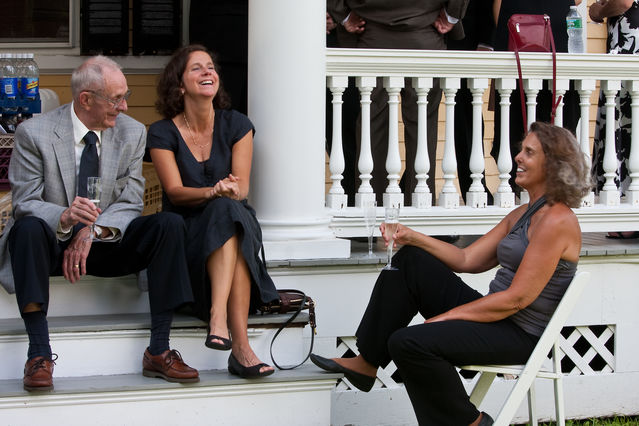
When I was a little girl, my sister and I would wait at the rock. We’d walk 2 blocks at the end of every afternoon, to a vacant, neighborhood lot. Then we’d sit down on the old boulder, and wait for the old Ford to show up. Daddy would drive us home.
He was and is, in many ways, like lots of other dads. Went to work every morning. Came home every night. Built a good family. Built a good life. Never, ever complained; always did whatever had to be done. Hard not to respect, impossible not to like. He was my hero then. And he’s my hero now.
A generation ago, it was all the rage in anthropology to say that fatherhood was what made us human. In those days, more American families were 2 parent families, and more of us thought dads were important. When Owen Lovejoy published a classic paper in Science “On the Origin of Man” in 1981, he argued that the cluster of traits that set people apart from other primates—our big brains, our ability to stand on our own 2 feet—was facilitated by the growing importance of male-female pair bonds. Fathers helped carry helpless babies, and they helped by providing for them.
Plenty of fathers are affectionate fathers. Aka Pygmy fathers, who live in the forests of central Africa, are notoriously devoted. By day, they hold children 4 and under, on average, roughly 13 minutes out of every hour. They feed, clean, cuddle, carry, comfort and play with their babies. And when those babies are inconsolable at night, it’s the fathers who get up. They sing and, “if necessary,” they dance, till their daughters and sons fall back to sleep.
Other fathers, most fathers, provide food. Aché fathers, who live in the forests of central South America, are notoriously good hunters. They bring home the opposum, aguti, paca and armadillo on a regular basis. They hunt, on average, about 7 hours a day. And they provide about 87% of the calories their groups consume.
The rage in anthropology these days is to talk about grandmothers. Mothers, and their mothers, always have, and always will, cooperate to raise their families. Grandmothers work hard on the Tanzanian savanna, collecting tubers and berries and baobab fruit, as Kristen Hawkes and her coworkers have often pointed out. And in this country, in the 21st century, generations of women are raising children without much help from men. It's becoming the era of the single mother.
But some of us still have dads. And over the millennia, many of us have had.
Happy Father’s Day, daddy, a couple of weeks late. And happy 88th! And thanks.
ACCOMPANIMENT:


